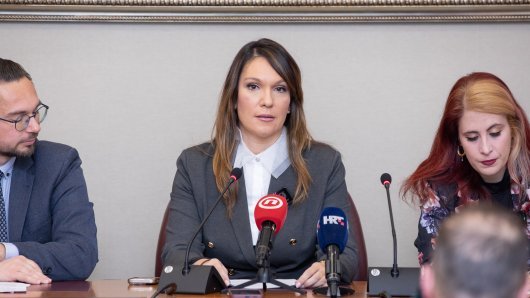The European Commission has said that it is not in favour of introducing verification mechanisms for Croatia like the ones introduced for Bulgaria and Romania, although the Romanian foreign minister has mentioned such a possibility.
The process of enlargement is based on one's own merits and is separate for each country. As far as Croatia is concerned, we are still not in a situation to discuss it. We strongly hope that we will not have to introduce the same mechanism for Croatia, as we do not think that the current mechanism for Bulgaria and Romania should set a precedent for any other country, said Natasha Butler, spokeswoman for European Enlargement Commissioner Stefan Fuele.
Butler gave the statement on Tuesday when asked to comment on a statement by Romanian Foreign Minister Teodor Baconschi who said in an interview with the Romanian press that he would request imposing the Cooperation and Verification Mechanism (CVM) on Croatia, too, if Germany and France persisted in blocking the entry of Romania into the Schengen zone.
The CVM mechanism was introduced for Romania and Bulgaria to make the two European Union newcomers carry out remaining reforms in their judiciaries because they were not fully ready for EU membership when they joined the bloc.
Baconschi said in his interview with the Adevarul paper that Romania had two options as a possible response to the recent decision by Germany and France to delay the admission of Bulgaria and Romania to the Schengen area.
One option is to admit its failure and follow the example of Bulgaria, which is in favour of negotiations with the two largest EU members. Dismissing this option, the Romanian minister advocates the second option, in which the proper response would be to obstruct efforts of Berlin and Paris to create "a Europe of two speeds".
The Romanian minister claimed that his country had overhauled its judiciary and accused the old EU members of using the CVM "for other purposes".
As long as the CVM is being applied to us, we cannot accept enlargement to the Western Balkans, including Croatia, without the CVM, Baconschi said in the interview.
Asked if Romania could hinder Croatia's entry into the 27-strong European bloc, European Commission spokesman Olivier Bailly said that the Commission's position is that the mechanism should not be introduced for some other member.
Each country should be assessed separately. The negotiations with Croatia are still not over and there is no need to discuss a hypothetical scenario, Bailly said.
The spokesman hopes that the membership negotiations with Croatia will be finished in the near future, which he says is in the interests of both Croatia and the EU.
Enlargement Commissioner Fuele said in late 2010 that the Commission would do its best to see to it that Croatia entered the EU without the application of the CVM.

































